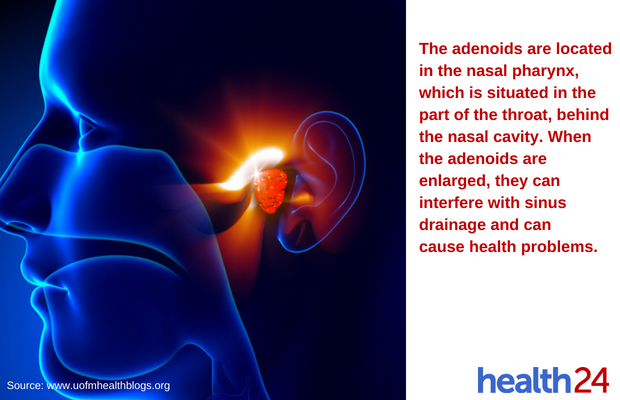
Are you suffering from chronic sinusitis symptoms that you can't seem to treat successfully?
There might be an often overlooked factor that could be causing your symptoms.
While adenoid hypertrophy is more common in children than adults, there are cases where adult adenoids have been linked to sinusitis.
According to a study published in the Indian Journal of Otolaryngology and Head and Neck Surgery, the majority of adult cases of adenoid hypertrophy are associated with infection and allergic rhinitis.
What are adenoids?
Just like the tonsils, adenoids are tissues located in the nasal pharynx, at the back of your throat behind the soft palate and your nasal cavity. These tissues help your immune system fight infections caused by inhaled bacteria. While tonsils are visible, adenoids can only be seen with a special instrument.
All babies are born with adenoids and tonsils. As the baby grows, the adenoids grow too and are at their largest at the age of five. At around seven years, adenoids begin to shrink, shrinking even further in adulthood.
In adults, infected adenoids do become enlarged, but shrink again when the infection has subsided. In some cases, however, the adenoids remain enlarged. Allergies may also cause adenoids to become enlarged.

What are the complications of swollen adenoids?
Because of their location in the airways, swollen adenoids can cause severe discomfort. Although not a life-threatening condition, it does require medical attention.
In most causes of adult adenoiditis, the tonsils will become infected at the same time. The enlarged tonsils and adenoids form a ring-like structure at the back of the throat, which narrows the airway and restricts the supply of oxygen to the lungs, making breathing difficult.
Enlarged adenoids can grow up to the size of a ping-pong ball, which can completely obstruct the airway. Even if the adenoids are not large enough to block the entire airway, this still causes significant discomfort and disruption of breathing.
Swollen adenoids in adults are extremely rare, but can cause a number of symptoms that are similar to chronic sinusitis. These include:
- Excessive snoring
- Noisy breathing
- Constant nasal congestion
- A “nasal” sound when speaking
- Breathing through the mouth
- A sore or dry throat in the morning
How can swollen adenoids be treated?
Although antibiotics can help to clear up the infection caused by enlarged adenoids, they might not get rid of it entirely and the adenoids may not return to their normal size. In such cases, surgery may be the only way to relieve the complications caused by the obstruction of the airway.
Image credit: iStock




 Publications
Publications
 Partners
Partners















